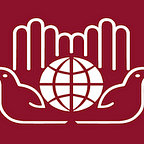Sinking Islands: Lessons from the Caret Island
The effects of climate change are widespread and sometimes fatal. Changes in temperature and unpredicted climate disasters have led to many deaths, both directly and indirectly. As global temperatures and sea levels rise, the reality of the current climate refugee crisis has become more apparent. Even though the United Nations does not recognize climate refugees in their official definition of “refugee,” they are an ever-growing population being forced being from their homes by manmade natural disasters, and Oceania is one of the most heavily affected areas. Islands such as Tuvalu, Vanuatu, The Solomon Islands, and the Fiji Islands are in grave danger due to rising sea levels.
The Carteret Islands are a group of islands that are part of Papua New Guinea, northeast of Bougainville. The rise in sea levels has led to the destruction of homes and also salt water intrusion, which has led to a depletion of fertile land, making the island almost inhabitable. The Carteret Islanders now rely on food deliveries from Bougainville. The people of the Carteret Islands are one of the first groups of people forced to leave their homes became of climate change. The Carteret Islands crisis serves as a warning for what could happen to the rest of the islands in Oceania. The people of the Carteret Islands have been forced to look for solutions themselves.
Tulele Peisa , which is Haila for “Sailing the waves on our own” is a grassroots organization that was founded in 2006 as a community-based approach to relocating families from the Carteret islands to Bougainville. The goal is to relocate 1,700 islanders to the mainland. One major challenge has been the difficulty of acquiring land in Bougainville. As of 2016, the four relocation sites that the organization currently uses were donated by the Catholic Church, which acquired the sites in 1964 on a 99-year lease. The Carteret Islanders have also had to negotiate with the people of Bougainville in order to acquire land and form connections with local communities to ease the integration process.
From Ursula Rakova, Executive Director, Tulele Peisa:
“Tulele Peisa has developed an inclusive and homegrown local solution for relocation of the displaced peoples of the Carterets affected by climate change. Tulele Peisa has achieved this with very limited financial support, but builds a sustainable program through relationship-building between the organization, the displaced community, and most importantly the host community.”
However, there have been reports of corruption and embezzlement by government officials of funds that were supposed to go to the organization. Tulele Peisa needs financial support from the United Nations and other NGOs to make sure that this project is a success before it’s too late.
Written by Aninwaa Anin-Yeboah, Innovation & Design Intern, Summer 2019
About the IIHA
The Institute of International Humanitarian Affairs (IIHA) prepares current and future aid workers with the knowledge and skills needed to respond effectively in times of humanitarian crisis and disaster. Our courses are borne of an interdisciplinary curriculum that combines academic theory with the practical experience of seasoned humanitarian professionals. The IIHA also publishes on a wide range of humanitarian topics and regularly hosts a number of events in the New York area, including the annual Humanitarian Blockchain Summit and Design for Humanity Summit.
For media inquiries, please contact: Camille Giacovas, Communications & Research Officer, IIHA cgiacovas@fordham.edu
